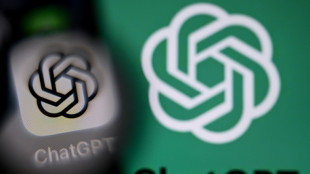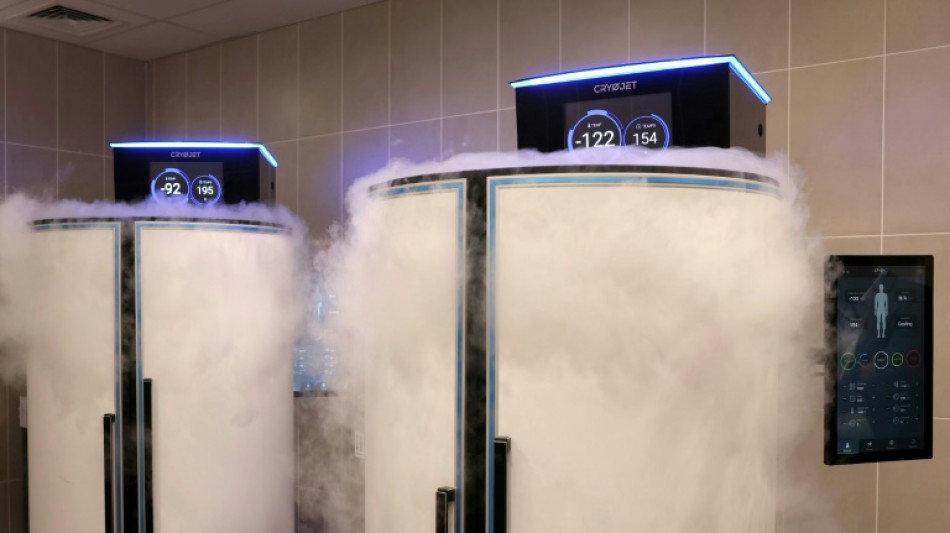
-
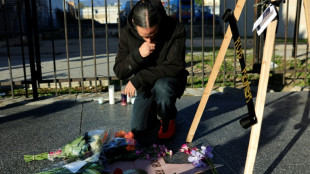 Rob Reiner murder: son not medically cleared for court
Rob Reiner murder: son not medically cleared for court
-
FIFA announces $60 World Cup tickets for 'loyal fans'
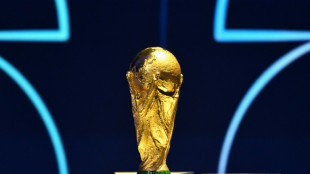
-
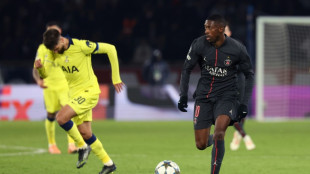 Dembele and Bonmati scoop FIFA Best awards
Dembele and Bonmati scoop FIFA Best awards
-
Shiffrin dominates first run in Courchevel slalom
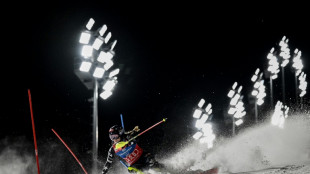
-
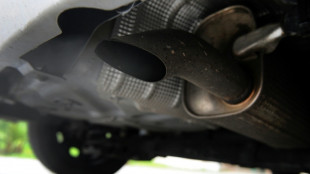 EU weakens 2035 combustion-engine ban to boost car industry
EU weakens 2035 combustion-engine ban to boost car industry
-
Arctic sees unprecedented heat as climate impacts cascade
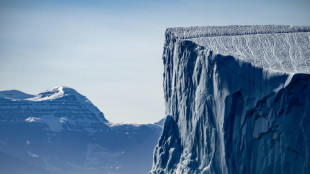
-
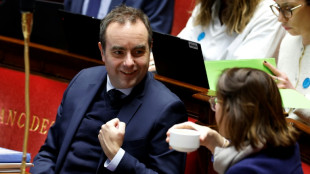 French lawmakers adopt social security budget, suspend pension reform
French lawmakers adopt social security budget, suspend pension reform
-
Afrikaners mark pilgrimage day, resonating with their US backers
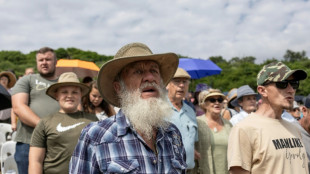
-
 Lawmakers grill Trump officials on US alleged drug boat strikes
Lawmakers grill Trump officials on US alleged drug boat strikes
-
Hamraoui loses case against PSG over lack of support after attack
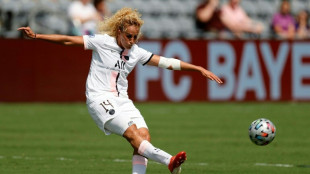
-
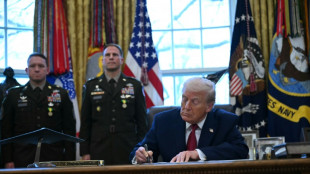 Trump - a year of ruling by executive order
Trump - a year of ruling by executive order
-
Iran refusing to allow independent medical examination of Nobel winner: family
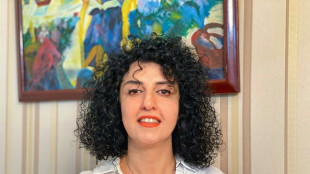
-
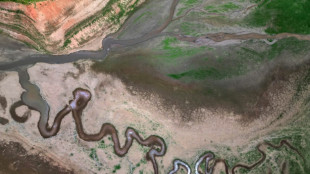 Brazil megacity Sao Paulo struck by fresh water crisis
Brazil megacity Sao Paulo struck by fresh water crisis
-
Australia's Green becomes most expensive overseas buy in IPL history
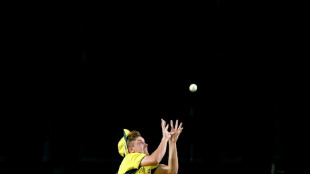
-
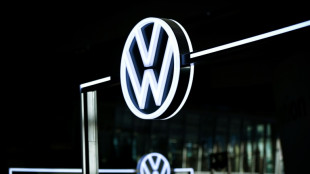 VW stops production at German site for first time
VW stops production at German site for first time
-
Man City star Doku sidelined until new year
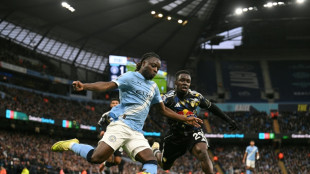
-
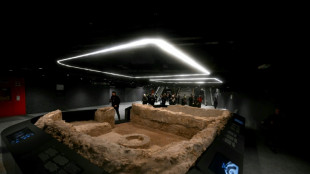 Rome's new Colosseum station reveals ancient treasures
Rome's new Colosseum station reveals ancient treasures
-
EU eases 2035 combustion-engine ban to boost car industry
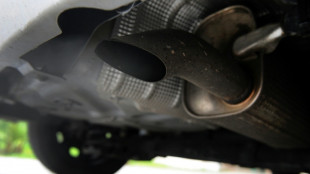
-
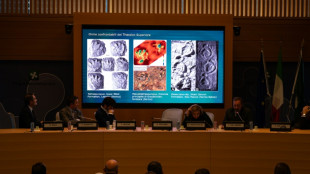 'Immense' collection of dinosaur footprints found in Italy
'Immense' collection of dinosaur footprints found in Italy
-
US unemployment rises further, hovering at highest since 2021
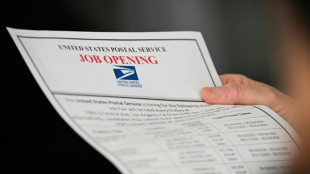
-
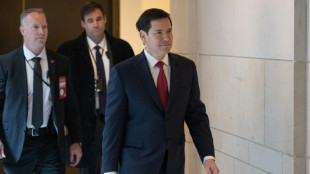 Senators grill Trump officials on US alleged drug boat strikes
Senators grill Trump officials on US alleged drug boat strikes
-
Filmmaker Rob Reiner's son to be formally charged with parents' murder
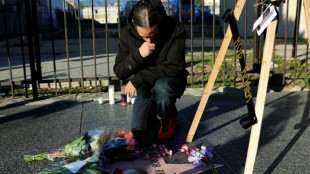
-
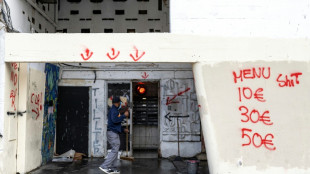 Shift in battle to tackle teens trapped in Marseille drug 'slavery'
Shift in battle to tackle teens trapped in Marseille drug 'slavery'
-
Stocks retreat on US jobs, oil drops on Ukraine hopes
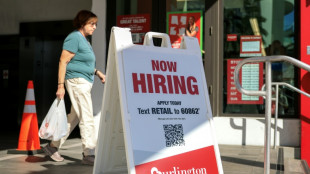
-
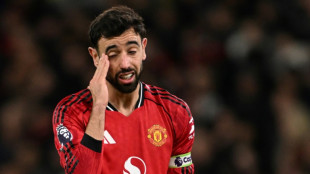 Manchester United 'wanted me to leave', claims Fernandes
Manchester United 'wanted me to leave', claims Fernandes
-
Serbian President blames 'witch hunt' for ditched Kushner hotel plan
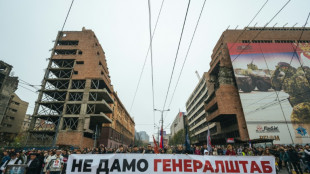
-
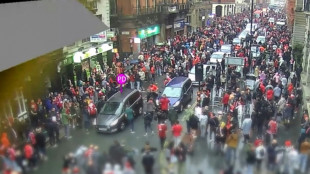 Man who hit Liverpool parade jailed for over 21 years
Man who hit Liverpool parade jailed for over 21 years
-
Sahel juntas would have welcomed a coup in Benin: analysts
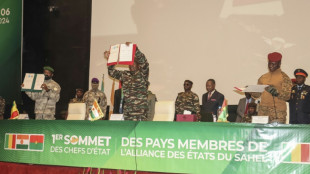
-
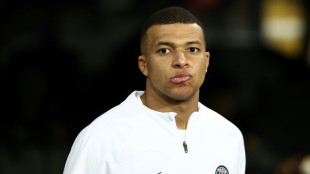 PSG ordered to pay around 60mn euros to Mbappe in wage dispute
PSG ordered to pay around 60mn euros to Mbappe in wage dispute
-
BBC says will fight Trump's $10 bn defamation lawsuit
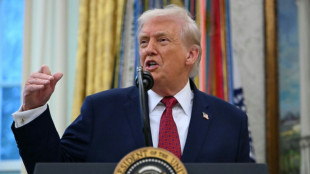
-
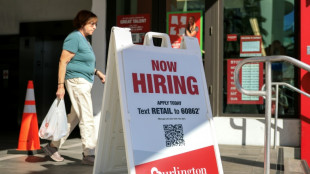 Stocks retreat ahead of US jobs, oil drops on Ukraine hopes
Stocks retreat ahead of US jobs, oil drops on Ukraine hopes
-
Suicide bomber kills five soldiers in northeast Nigeria: sources
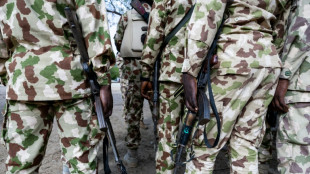
-
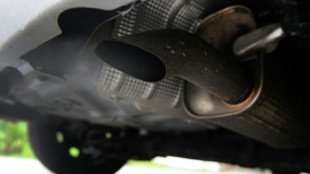 EU set to drop 2035 combustion-engine ban to boost car industry
EU set to drop 2035 combustion-engine ban to boost car industry
-
Australia's Green sold for record 252 mn rupees in IPL auction
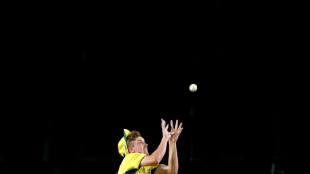
-
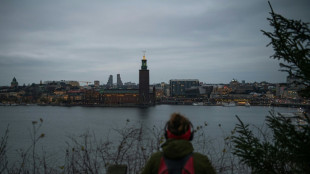 Elusive December sun leaves Stockholm in the dark
Elusive December sun leaves Stockholm in the dark
-
Brendan Rodgers joins Saudi club Al Qadsiah
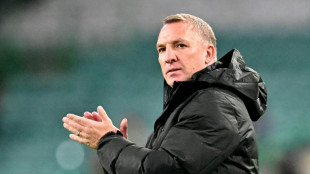
-
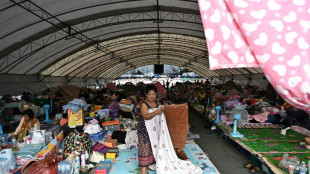 Thailand says Cambodia must announce ceasefire 'first' to stop fighting
Thailand says Cambodia must announce ceasefire 'first' to stop fighting
-
M23 militia says to pull out of key DR Congo city at US's request
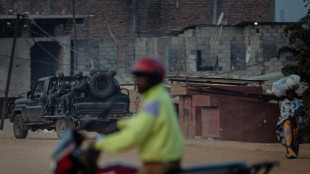
-
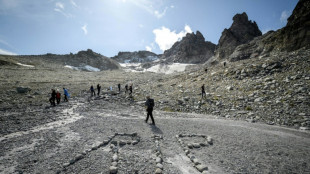 Thousands of glaciers to melt each year by mid-century: study
Thousands of glaciers to melt each year by mid-century: study
-
China to impose anti-dumping duties on EU pork for five years
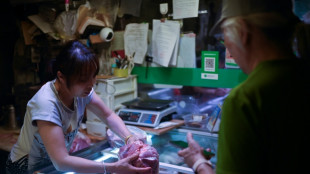
-
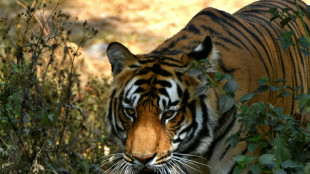 Nepal starts tiger census to track recovery
Nepal starts tiger census to track recovery
-
Economic losses from natural disasters down by a third in 2025: Swiss Re

-
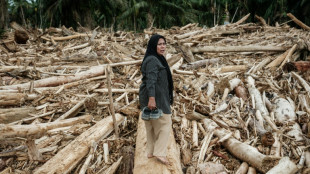 Indonesians reeling from flood devastation plea for global help
Indonesians reeling from flood devastation plea for global help
-
Timeline: How the Bondi Beach mass shooting unfolded
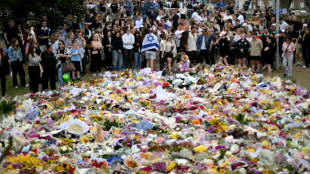
-
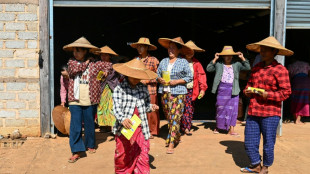 On the campaign trail in a tug-of-war Myanmar town
On the campaign trail in a tug-of-war Myanmar town
-
Bondi Beach suspect visited Philippines on Indian passport
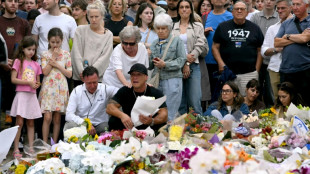
-
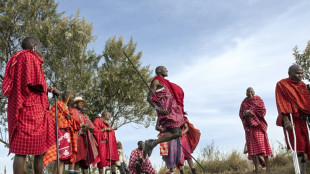 Kenyan girls still afflicted by genital mutilation years after ban
Kenyan girls still afflicted by genital mutilation years after ban
-
Djokovic to warm up for Australian Open in Adelaide
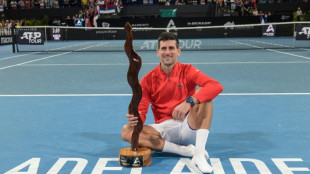
-
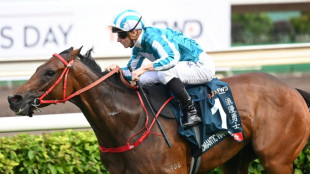 Man bailed for fire protest on track at Hong Kong's richest horse race
Man bailed for fire protest on track at Hong Kong's richest horse race
-
Men's ATP tennis to apply extreme heat rule from 2026
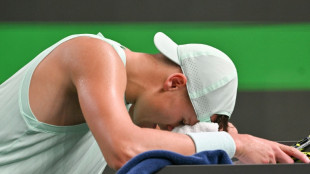

From ice baths to osteopaths: unproven therapies at the Olympics
The Paris Olympics have been a showcase not only for athletic prowess but also for therapies such as ice baths and osteopathy which have little scientifically proven medical value, according to experts.
The Olympics have long been a fertile ground for questionable medical treatments, as athletes seek out every way possible to improve their performance and tamp down their pain.
"In sport there is a lot of propaganda for all kinds of 'alternative medicine' -- there is a lot of demand from athletes," French neurologist and pain specialist Didier Bouhassira told AFP.
At the Rio Games eight years ago, cupping was the latest pseudoscientific fad. Though praised at the time by athletes such as US Olympic swimming great Michael Phelps, there is little scientific evidence that applying heated cups to the skin has any more benefit than a placebo.
For this year's Games, which kicked off in Paris on Friday, ice has been all the rage.
Cryotherapy -- which includes cold-water swimming, ice baths and more advanced cooling chambers -- is touted to help athletes recover after vigorous exercise.
- The new ice age -
According to a recent editorial published in the British Journal of Sports Medicine, the federations taking part in the Paris Games together requested more than 16,000 tons of ice -- at a cost of 2.5 million euros ($2.7 million).
No vendor was able to supply such a massive amount of ice, so the Olympics will have to make do with 650 tons, the editorial said. That is still 10 times more than was required at the Tokyo Games only three years ago.
The editorial's authors criticised the routine use of cryotherapy for athletes between training sessions.
While ice baths can treat some conditions, such as heat stroke, athletes often use it "to obtain benefits which are not evidence-based," they wrote.
"Ice could have the opposite effect to that expected such as delayed tissue regeneration or impaired recovery."
The authors also stressed the environmental impact of producing, transporting and storing such vast amounts of ice.
- 'Long way from science' -
Another alternative medicine sought out by athletes -- osteopathy -- is no newcomer to the Olympics.
Osteopaths are on the staff of federations and integrated into the teams at the official Olympic clinic which monitors athletes daily.
But osteopathy, which promises to restore health through manipulations of the body, has little scientific basis and its effectiveness remains hotly contested.
Studies with rigorous methodology have found that broad swathes of the discipline -- such as "cranial" or "visceral" osteopathy -- simply have no effect.
Other osteopathic manipulations, which hew closer to those done by physios, appear to have no particular advantage over conventional, evidence-based physiotherapy.
A randomised clinical trial published in JAMA Internal Medicine in 2021 compared the effect of osteopathic manipulations with "sham" treatments such as light touching in 400 patients with back pain.
The difference between the two was "likely not clinically meaningful", the study said.
Osteopaths offer athletes a feeling of "well being without curative properties", said Pascale Mathieu, president of France's council of physiotherapists.
Mathieu emphasised she was not too worried about osteopathy being given a showcase at the Olympics, where routine care is often a mix of physiotherapy and osteopathy.
"What I'm really fighting for is to prevent osteopathy from entering hospitals," she said.
Some companies have also been accused of using the Olympics to sell products of dubious medical value.
French pharmaceutical giant Sanofi came under criticism for promoting a "pain-relieving" patch called Initiv in the run-up to the Games.
Advertised with the support of athletes such as French Olympian Kevin Mayer, Sanofi says the patch has particles which reflect infrared energy emitted by the body towards a particular area to relieve pain.
Sanofi told AFP that a clinical trial of the patch had been "received favourably by the scientific community".
But pain specialist Didier Bouhassira was not convinced.
"A product is being touted as a miracle, but it's pure PR and a long way from science," he said.
Th.Berger--AMWN
